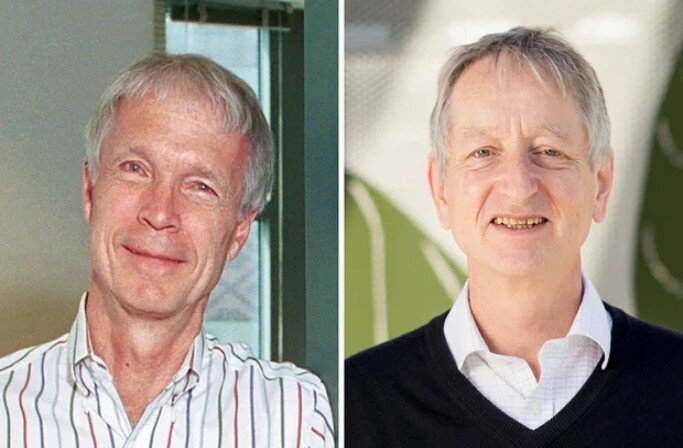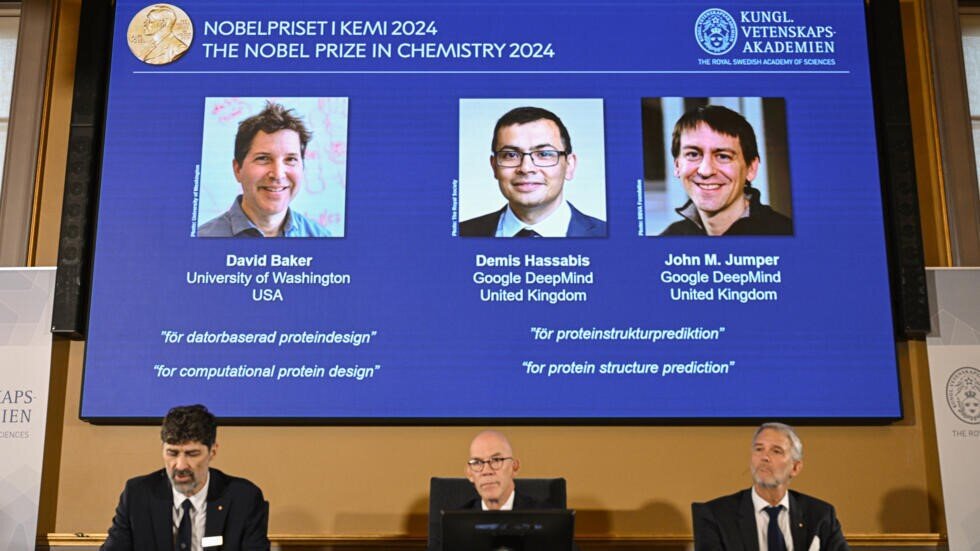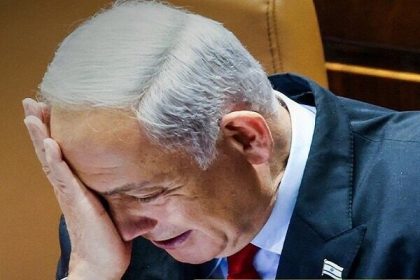According to Mehr’s reporter, the past days had a special importance for the world scientific community. During these days, the winners of the Nobel Prizes in 3 fields of medicine, physics and chemistry were announced. These winners have spent their lives improving human life and making discoveries that define new meaning for the smallest particles of life.
But what attracted attention in this year’s Nobel was the awarding of the Nobel Prizes in Physics and Chemistry to research in the field of artificial intelligence, so that even the godfather of artificial intelligence was one of the Nobel winners this year. It seems that, as experts predicted years ago, the age of artificial intelligence has arrived. Of course, on the other hand, these awards show that the applications of artificial intelligence go far beyond attractive gadgets and features that turn mobile phones into smart toys.
This technology, which seems to have been developing since the 1980s, has now reached a flourishing stage and has transformed even the smallest scientific structures. What you are reading below is a description of research and of course researchers who have changed life and the life cycle.
The microstructure of RNA won the Nobel Prize in Medicine
In 2024, 2 researchers won the Nobel Prize in Medicine for their research on microRNA. The Nobel Committee announced “Victor Ambrose” and “Gary Rovken” as the winners of the 2024 Nobel Prize in Medicine.
Victor Ambrose was born in 1953 (70 years old) in Hampshire and is an American biologist who is famous for the discovery of microRNA (miRNA). He is a professor at the University of Massachusetts Medical School.
Gary Bruce Rowken was born in 1952 in Berkeley, California. He is a molecular biologist at Massachusetts General Hospital and a professor of genetics at Harvard Medical School in Boston, USA. miRNA are a new class of small RNA molecules that play an important role in gene regulation. The revolutionary discovery of these two researchers in the small worm C, elegans revealed completely new principles in gene regulation. Their research has important implications for multicellular organisms, including humans.
MicroRNAs play a very important role in the evolution and functioning of organisms.
Nobel laureates warn about the dangers of artificial intelligence
On October 8, 2024, John Hopfield and Geoffrey Hinton won the Nobel Prize in Physics for their research on the application of machine learning (a subset of artificial intelligence) in artificial neural networks.
Hopefield, a 91-year-old American researcher, invented a structure that was able to store and reconstruct information. Hinton also invented a method to independently discover features in data. This innovation is very important in large artificial neural networks.
Interestingly, Hopfield is the oldest winner of this award this year.

On the other hand, Geoffrey Hinton is an English-Canadian computer researcher and cognitive psychologist. He, who is called the godfather of artificial intelligence, worked at Google from 2013 to 2023, but he resigned from his job in this technology giant due to concerns about the dangers of this new technology.
In an interview after his name was announced as the winner of the Nobel Prize in Physics, Hopfield said: “Recent advances in artificial intelligence are very worrying.” He also warned that if these developments are not controlled, a disaster will occur.
He said in a video speech: People are used to having technologies that are not good or bad on their own, but have capabilities in both directions. As a physicist I am very concerned about technology over which there is no control; This is actually something I don’t understand well enough to understand the limits of this technology. Artificial intelligence raises the same question. According to him, although artificial intelligence systems seem to be fantastic, there is a lack of understanding of how they work, and this is very worrying.
Hopfield continued: “That is why Geoffrey Hinton and I are supporters of the understanding of this area, which in the future will lead to the development of capabilities that will be beyond the current imagination.”
Artificial intelligence also won the Nobel Prize in Chemistry
Interestingly, this year’s chemistry Nobel winners were somehow active in the field of artificial intelligence. Half of this prize was awarded to 48-year-old American researcher David Baker. Baker works at the University of Washington, USA, and won this award for his research on computational protein design.
David Baker, an American biochemist and computational biologist, was born in 1962 in the United States and is a professor of biochemistry. The artificial intelligence programs developed by Baker and his colleagues have generally solved the problem of protein structure prediction. He also won the Wiley Award in 2022.

The other half of the Nobel Prize in Chemistry was jointly awarded to Demis Hasabis and John Jumper, Google’s DeepMind researchers in England, for predicting protein structure.
Demis Hasabis is a 48-year-old English computer scientist. Before this, he was a programmer and designer of artificial intelligence computer games. He is currently the CEO and co-founder of DeepMind as well as Isomorphic Labs. In addition, he is also an artificial intelligence consultant for the British government.
John Michael Jumper is an American Senior Research Fellow at DeepMind Technology. He and his colleagues developed an artificial intelligence model, Alphafold, that predicts protein structure from amino acid sequences with high accuracy. He previously claimed that the Alpha Fold team plans to publish 100 million protein structures. He studied at the University of Chicago.
According to the AFP news agency, Jumper, who was born in 1985, is the youngest Nobel laureate this year and was already considered as one of the candidates for the award for his research on the alpha fold model. He also won the Lascar award in 2023.
In a post on X, DeepMind congratulated both researchers and wrote: This is a major achievement for artificial intelligence, computational biology and science.
“We’re excited about all the ways protein design can make the world a better place, including health, medicine, technology and environmental conservation,” Baker said in an interview.
He added: Our new artificial intelligence methods are much more powerful than traditional scientific models.
RCO NEWS















